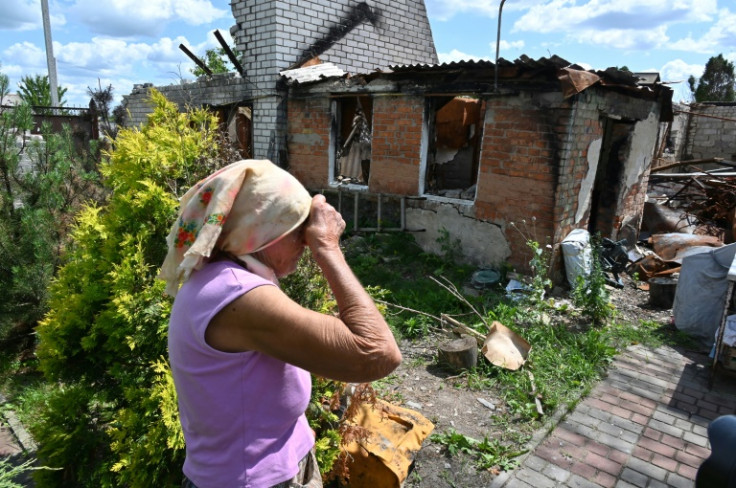More than 9 million refugees have returned to Ukraine as they face 'immense' trauma
UNHCR reveal that refugees are returning to Ukraine, bomb shelters have been developed into classrooms, and houses are being repaired in the run-up to winter.

In March 2022, following the Russian Federation's full-scale invasion of Ukraine, the UNHCR issued a non-returns advisory to Ukrainian nationals who had fled the country. The non-returns advisory called on neighbouring countries to allow people fleeing the war zone non-discriminatory access to their territories.
Since the Russia-Ukrain War escalated in February 2022, several refugees from Ukraine have made short-term visits back home, to support family members and other relations. Although many refugees have made it to and from Ukraine safely, the UNHCR does not consider that these journeys diminish refugees' need for international protection.
For the refugees who have been returning to Ukraine on a short-term basis, the UNHCR continue to assert that their legal status and associated rights in a host country should not be affected.
In a survey conducted by the UNHCR, more than 7,500 thousand refugees from Ukraine in neighbouring countries, together with internally displaced people, were interviewed.
A staggering 76 per cent of the refugees from Ukraine in host countries said that they either planned or wished to return to Ukraine, once the conflict has eased. A huge 82 per cent of the internally displaced population in Ukraine, also plan to return to their original homes after the war.
However, 15 per cent of the interviewees declared that they are planning to return to Ukraine within the next three months.
If displaced people are to return to their homes, while the conflict continues, the UNHCR state that developments must be made to create easy access to basic services like water, electricity, housing, education services, and food.
In February 2023, it was recorded that there are roughly 13,000 operational schools in Ukraine – with over one million children attending classes in person. More than 2.7 million children are either studying online or receiving a combination of online and in-person teaching.
A school class in a bomb shelter, prepared for the students of a school in Kyiv for the new school year. #Ukraine #war #RussianAggression #RussianWarCrimes #RussiaIsATerroristState pic.twitter.com/oxoexP89DB
— Zav Raya 🇺🇦🇪🇺💙💛🌻 (@zav_raya) August 30, 2022
The Ukrainian authorities have declared that it is inherent that functioning schools have bomb shelters in the facility. Many bomb shelters across Ukraine have had renovations made, to make them appear like child-friendly classrooms. This design technique creates a safe and colourful space for students to learn and socialise.
Kateryna Bokach, a teacher in Ukraine, spoke of the new teaching circumstances in Ukraine. She said: "Sometimes it is difficult to breathe because there are a lot of children and teachers, and there is a lot of noise."
Sofiia Smovzh, a student who is studying Chemistry at the National University of Kyiv, stated: "We made a choice to stay in Ukraine, and to continue to work in Ukraine and develop our skills in Ukraine. That is how we can support our country."
In February 2023, the UNHCR recorded that 18 million people had fled the country due to the brutality of Putin's forces.
Like Sofiia Smovzh, who returned to Ukraine to continue her studies, more than 9 million refugees have also returned to their homeland.
The UNHCR has prioritised the housing crisis in Ukraine and has generated a scheme that has so far repaired around 1,800 houses in the Chernihiv region alone. More than 1,400 houses have also been repaired in the Kharkiv region, due to the survey showing a high interest to return to the north of Ukraine.
Karolina Lindholm Billing, a UNHCR Representative in Ukraine, revealed: "Returns to areas that have been affected by flooding after the Kakhovka dam destruction are particularly challenging."
She continued saying: "I visited Bilozerka hromada, one of the worst flood-affected regions in Kherson Oblast, and met with Liubov – a woman in her 70s whose house had been hit twice by shelling, tragically killing her daughter, who left behind a 19-year-old son and a daughter, aged 9."
While emphasising the layers of humanitarian aid that people need in Ukraine, Karolina Lindholm Billing added that "the trauma they are going through is immense" and that the population "lives in constant fear that something even worse may happen to them".
© Copyright IBTimes 2024. All rights reserved.






